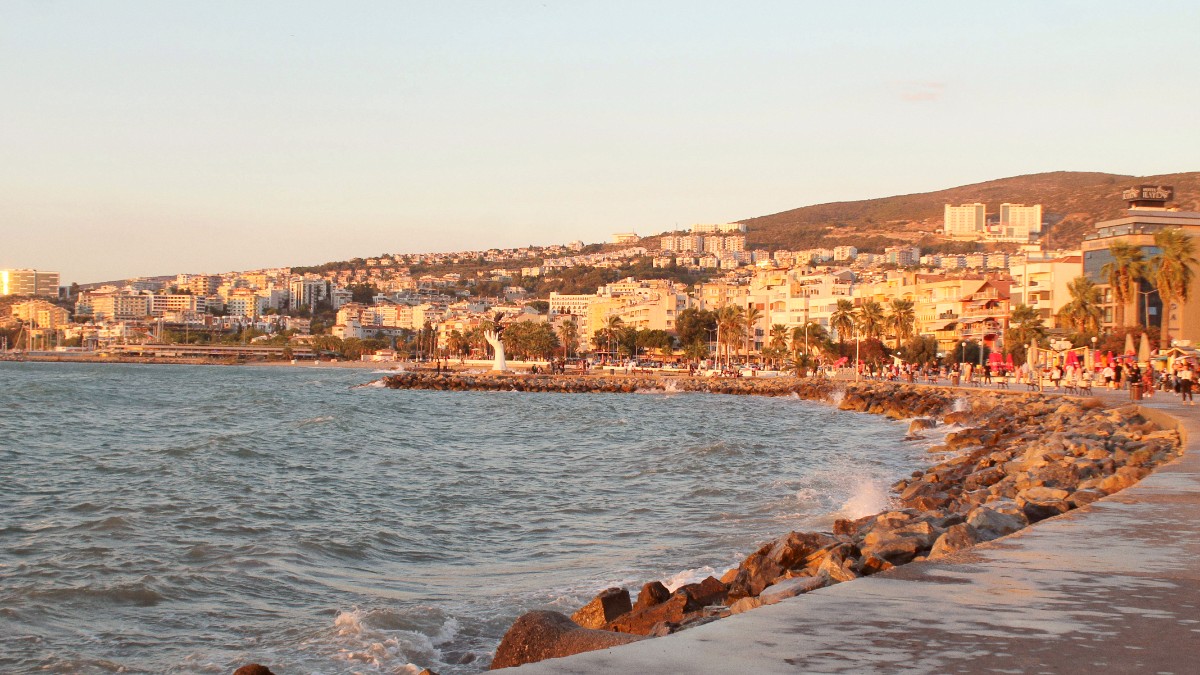
Aegean Coast, Turkey
Support local businesses and artisans directly. This helps ensure your tourism dollars benefit the community.
Choosing locally-owned establishments puts money back into the hands of residents and fosters a thriving local economy.
Protecting Kusadasi's natural beauty and resources is a shared responsibility. Mindful environmental practices contribute to the destination's long-term health.
Dilek Peninsula - Büyük Menderes Delta National Park attempts to preserve unique ecosystems and pristine coastal landscapes.
Minimize single-use plastics. Bring a reusable water bottle and shopping bag. Dispose of trash properly.
The Aegean region can experience water stress. Be mindful of water usage: take shorter showers, reuse towels, report leaks.
Look for hotels and tour operators that actively promote sustainable practices.
Consider purchasing carbon offsets for your flights.
Consider Patagonia for sustainable outdoor gear and Package Free Shop for reusable products.
Look into Ecobnb for eco-friendly accommodations and G Adventures for ethical tours.
Support local crafts and traditional arts directly from artisans. This encourages the continuation of traditional skills and cultural heritage.
Be mindful of privacy. Avoid photos that intrude on people's private lives or religious practices without permission.
Adhering to mosque etiquette shows respect for local traditions.
Remove your shoes before entering mosques.
Women: cover head, shoulders, knees. Men: wear trousers or long shorts.
Maintain silence. Do not walk in front of praying individuals.
Positive interactions with locals deepen your understanding of Turkish culture.
Your spending decisions contribute to the local economy. Opt for choices that support community well-being.
Seek opportunities to support small, local businesses directly.
When purchasing handcrafted items, inquire about their origin and production methods.
Avoid activities that exploit animals or human populations.
Prioritize locally owned businesses over international chains.
Direct giving can sometimes encourage dependency or organized begging. It is better to support established local charities.
Donate through reputable local non-governmental organizations.
Seek charities supporting local education projects.
Consider organizations focused on community health or social welfare.
Conscious spending decisions empower local communities and promote ethical tourism.